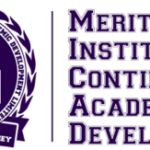Industrial security holds significant importance for various reasons. Here are some key points that highlight its significance:
- Protection of Assets: Industrial facilities house valuable assets such as equipment, machinery, raw materials, finished products, and intellectual property. Industrial security ensures the protection of these assets from theft, vandalism, sabotage, or unauthorized access. By implementing appropriate security measures, organizations can safeguard their investments and prevent financial losses.
- Personnel Safety: Industrial sites often involve hazardous materials, complex machinery, and potentially dangerous processes. Ensuring the safety of employees, contractors, and visitors is paramount. Industrial security measures help identify and mitigate risks, promote safety protocols, and respond effectively to emergencies. By prioritizing personnel safety, organizations can prevent accidents, injuries, and potential loss of life.
- Information Protection: In today’s digital age, industrial operations rely heavily on technology and information systems. Industrial security encompasses the protection of sensitive data, trade secrets, customer information, and proprietary technologies. By safeguarding information from unauthorized access, industrial espionage, cyber-attacks, or data breaches, organizations can maintain their competitive advantage, protect their reputation, and comply with legal and regulatory requirements.
- Operational Continuity: Disruptions in industrial operations can have severe consequences, including financial losses, reputational damage, and delays in production. Industrial security measures, such as risk assessments, contingency planning, and business continuity strategies, help identify potential vulnerabilities and develop robust systems to minimize the impact of disruptions. By ensuring operational continuity, organizations can meet customer demands, maintain productivity, and sustain profitability.
- Regulatory Compliance: Industrial sectors are subject to various regulations and standards aimed at protecting the environment, public safety, and worker rights. Industrial security plays a vital role in ensuring compliance with these regulations. By implementing security measures aligned with industry standards and regulatory requirements, organizations can avoid penalties, legal liabilities, and reputational harm.
- Reputation and Stakeholder Trust: Effective industrial security measures contribute to the overall reputation and trustworthiness of an organization. Customers, investors, and other stakeholders expect organizations to prioritize security to protect their interests. Demonstrating a commitment to industrial security enhances brand reputation, fosters customer loyalty, attracts investors, and strengthens relationships with stakeholders.
- Resilience Against Threats: Industrial facilities face various threats, including theft, industrial espionage, terrorism, natural disasters, and cyber-attacks. Robust security measures, including access control systems, surveillance technologies, alarm systems, and incident response protocols, help organizations proactively detect, deter, and respond to threats. By building resilience against potential risks, organizations can minimize vulnerabilities and recover quickly from adverse events.
Industrial security is crucial for protecting assets, ensuring personnel safety, safeguarding sensitive information, maintaining operational continuity, complying with regulations, preserving reputation, and building resilience against threats. By investing in comprehensive security measures, organizations can mitigate risks, minimize losses, and create a secure environment for their employees, customers, and stakeholders.
